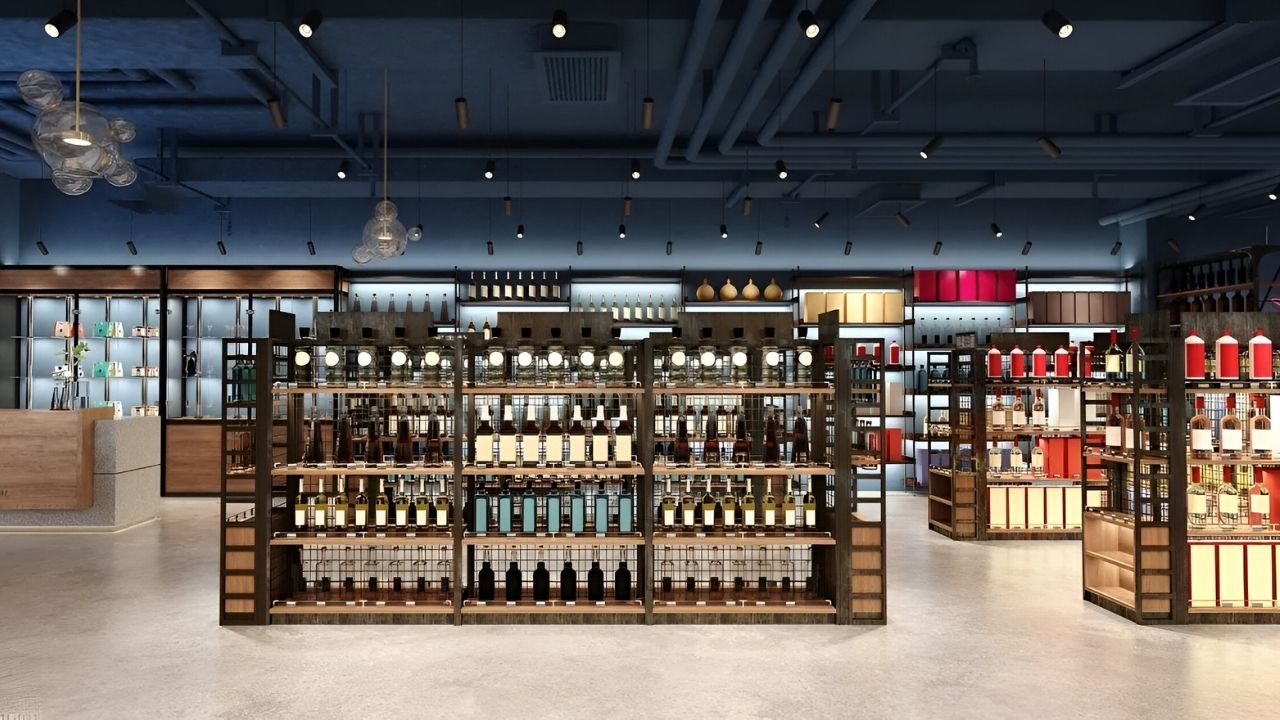
Ever wondered what makes liquor stores so intriguing? From their unique history to the variety of spirits they offer, liquor stores hold a wealth of fascinating facts. Did you know that the first liquor store in the United States opened in 1634? Or that some states have "dry counties" where alcohol sales are banned? Liquor stores also play a significant role in local economies, providing jobs and generating tax revenue. Whether you're a casual shopper or a connoisseur, there's always something new to learn about these establishments. Buckle up as we dive into 29 captivating facts about liquor stores!
Key Takeaways:
- Liquor stores have a fascinating history, from ancient Mesopotamia to the modern era, and have evolved significantly over time, shaped by factors like Prohibition and state regulations.
- The future of liquor stores is embracing technology and sustainability, with online sales, virtual reality experiences, and eco-friendly packaging, while also offering a wider variety of unique and locally-produced products.
The History of Liquor Stores
Liquor stores have a rich history that spans centuries. From ancient civilizations to modern times, these establishments have evolved significantly.
- The first known liquor store dates back to ancient Mesopotamia, where alcohol was sold in taverns.
- In the Middle Ages, monasteries often brewed and sold beer and wine to fund their activities.
- The first American liquor store opened in Boston in 1634, selling imported wines and spirits.
- Prohibition in the United States (1920-1933) led to the rise of illegal speakeasies, which were secret bars selling alcohol.
- After Prohibition ended, liquor stores became regulated by state laws, leading to the modern system we see today.
Types of Liquor Stores
Not all liquor stores are the same. They can vary greatly depending on location, size, and the types of products they offer.
- Convenience stores often sell a limited selection of beer and wine along with other groceries.
- Specialty liquor stores focus on high-end or rare spirits, wines, and craft beers.
- Big-box retailers like Costco and Walmart have sections dedicated to alcohol, often at discounted prices.
- Online liquor stores have become increasingly popular, offering home delivery and a wide selection of products.
- Some states have state-run liquor stores, where the government controls the sale of alcohol.
The Economics of Liquor Stores
Liquor stores play a significant role in the economy, contributing to both local and national revenue.
- The global alcoholic beverages market was valued at over $1.5 trillion in 2020.
- In the United States, liquor stores generate approximately $70 billion in annual sales.
- Taxes on alcohol sales contribute billions of dollars to state and federal budgets each year.
- Liquor stores often have higher profit margins compared to other retail businesses, sometimes exceeding 20%.
- Seasonal sales, particularly around holidays like Christmas and New Year's, can account for a significant portion of annual revenue.
Regulations and Laws
Liquor stores are subject to a variety of regulations and laws that can vary widely from one place to another.
- In the United States, each state has its own set of laws governing the sale of alcohol, known as "blue laws."
- Some states have "dry counties" where the sale of alcohol is prohibited.
- Age restrictions for purchasing alcohol are strictly enforced, with most countries setting the legal drinking age at 18 or 21.
- Many states require liquor store employees to undergo training on responsible alcohol sales.
- Advertising for liquor stores is often regulated to prevent targeting minors.
Fun Facts About Liquor Stores
Liquor stores are not just about business and regulations; they also have some interesting and fun aspects.
- The oldest continuously operating liquor store in the United States is M. S. Walker in Massachusetts, founded in 1933.
- Some liquor stores offer tasting events where customers can sample different products before buying.
- In Japan, some vending machines sell alcoholic beverages, including beer and sake.
- The world's largest liquor store, DaveCo Liquors, is located in Colorado and spans over 100,000 square feet.
- Many liquor stores have loyalty programs that offer discounts and rewards to frequent customers.
The Future of Liquor Stores
As technology and consumer preferences evolve, liquor stores are also adapting to meet new demands.
- The rise of e-commerce has led to an increase in online liquor sales, with many stores offering same-day delivery.
- Some liquor stores are incorporating virtual reality to provide immersive shopping experiences.
- Sustainable and eco-friendly packaging is becoming more common in liquor stores, reflecting growing environmental concerns.
- The trend towards craft and artisanal products is leading to a greater variety of unique and locally-produced spirits, wines, and beers available in stores.
Final Sip of Knowledge
Liquor stores hold more than just bottles on their shelves. They reflect cultural trends, economic shifts, and even historical events. From the Prohibition era's speakeasies to today's craft distilleries, these shops have evolved significantly. They offer a wide range of products, from local brews to international spirits, catering to diverse tastes and preferences. Understanding the facts about liquor stores can enhance your appreciation for what they offer and the role they play in communities. Whether you're a casual consumer or a connoisseur, knowing these tidbits can make your next visit more interesting. So next time you walk into a liquor store, you'll see it as more than just a place to buy alcohol—it's a slice of history and culture. Cheers to that!
Frequently Asked Questions
Was this page helpful?
Our commitment to delivering trustworthy and engaging content is at the heart of what we do. Each fact on our site is contributed by real users like you, bringing a wealth of diverse insights and information. To ensure the highest standards of accuracy and reliability, our dedicated editors meticulously review each submission. This process guarantees that the facts we share are not only fascinating but also credible. Trust in our commitment to quality and authenticity as you explore and learn with us.
